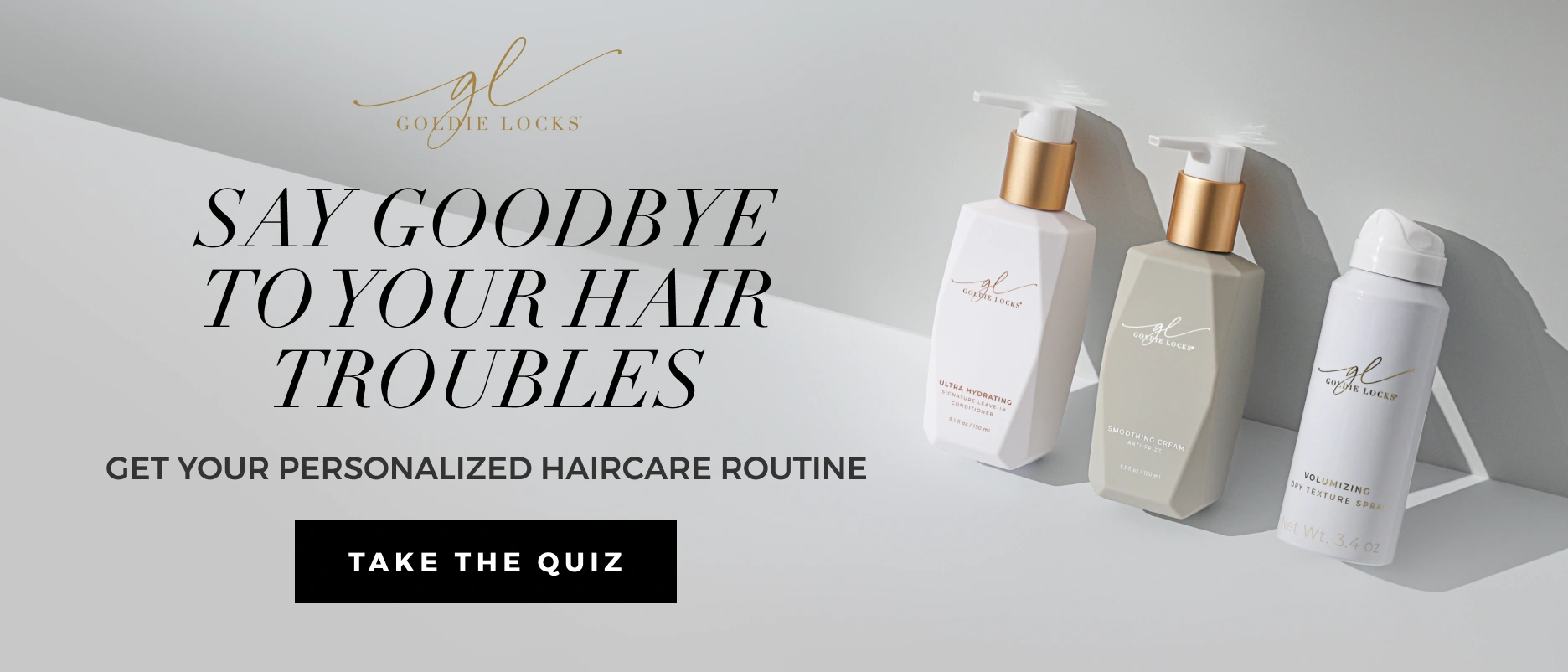As with most things, even the good can become counterproductive when overdone. Salt water is no exception when it comes to hair.
There’s an undeniable allure to the effortless waves that follow a day at the beach. Many aim to recreate that look as part of their everyday hair routine. But using salt water on your hair and scalp too frequently may not be the healthiest choice.
In the guide that follows, we’ll explore both the benefits and potential drawbacks of using salt water as a natural styling aid, along with practical tips to help you care for your hair while making the most of your time in the sea or the pool.
Is Salt Water Bad for Your Hair?

Salt water isn’t inherently bad for your hair, in fact, it can offer several benefits. But without proper care, prolonged or frequent exposure can strip your hair of its natural moisture, leading to dryness, brittleness, and color fading.
Here are some of the ways salt water can negatively impact your hair:
-
Moisture Loss & Dehydration
Salt water draws moisture from both the scalp and hair shaft, leaving strands feeling dry, brittle, and prone to frizz. -
Weakened Hair Structure
Salt can damage the hair cuticle (the outermost protective layer), resulting in split ends, breakage, and increased frizz. -
Color Fading
If your hair is dyed or highlighted, salt water can accelerate fading and leave color-treated hair looking dull and lackluster. -
Scalp Irritation & Itching
Salt water may irritate the scalp, particularly for those with sensitive skin. This can cause itching, redness, or flaking over time.
Salt Water Pools vs. Chlorine Pools

While both saltwater pools and chlorinated pools can dehydrate hair and strip away its natural oils, they don’t affect the hair in the same way.
Chlorine is a chemical disinfectant known for its harsh effects. It can be especially damaging to color-treated, often leaving it brittle, dry, and discolored. Saltwater pools rely on a gentler form of sanitation and tend to offer a softer, less abrasive experience for both the hair and scalp.
Too much exposure to salt water can still lead to dryness. But when used in moderation, salt water can actually benefit the scalp and hair. It’s naturally rich in minerals that help soothe irritation and reduce dandruff by supporting a healthy, balanced scalp pH.
Can Salt Water Ever Be Good for Your Hair?

The answer is yes, salt water can offer several benefits for your hair when used mindfully.
Here’s how it can support a healthier scalp and more voluminous strands:
-
Added Volume & Texture
Salt crystals gently lift the hair cuticle, adding texture and body, creating that effortless, beachy look many try to replicate with styling products. -
Natural Antifungal Properties
Salt water has mild antifungal effects, making it helpful in reducing scalp infections and soothing dandruff. -
Gentle Exfoliation
Acting as a natural exfoliant, salt water helps remove product buildup and stimulates blood circulation to the scalp, encouraging healthier follicles and potentially supporting hair growth. -
Reduced Oiliness
By absorbing excess oil and sebum, salt water helps keep your scalp feeling fresh and clean, extending the time between washes.
Expert Insight:
“Extension Hair + Pool Days = Extra Care 💦🌞
Here’s your before and after swim routine to keep your extensions healthy, hydrated, and tangle-free all summer long:
BEFORE SWIMMING
- Wet your hair with clean water
- Apply leave-in conditioner generously
- Follow with a hydrating serum to seal it in
- Put hair in a bubble braid (not a traditional braid, it will be a tangled mess!)
This protects your hair from soaking up chlorine or saltwater!
AFTER SWIMMING
- Rinse immediately and hop in the shower
- First wash: Use Goldie Locks® Signature Shampoo with lots of water
- Second wash: Use Goldie Locks® Clarifying Shampoo and let it sit for a few minutes
- Rinse and gently squeeze out excess water
- Apply a hydrating mask, comb through, and let sit for 5 minutes
- Rinse well
- No towel drying! Keep that hydration in
- Apply leave-in conditioner + serum while hair is still wet
- Finish with a low heat blow-dry or air dry
Your summer hair routine = protected, nourished, and extension-safe.” – Elly Schott
How to Protect Your Hair Before and After Swimming

You can absolutely embrace the nourishing qualities of salt water without compromising your hair’s health. With a few thoughtful steps before and after your swim, you can enjoy its natural benefits while keeping your strands protected:
-
Wet Your Hair with Fresh Water First
Rinse your hair with fresh water before swimming in salt water. This simple step helps saturate the hair shaft, minimizing how much salt water it absorbs, and in turn, reducing potential dryness and damage. -
Use Barrier Products:
Applying a barrier product such as Goldie Locks® Signature Leave-In Conditioner or Goldie Locks® Signature Hair Serum, before entering the sea can help shield your hair from moisture loss and prevent it from drying out. -
Use a Cap or Protective Hairstyles
A swim cap will protect your hair from getting wet while swimming. If you’re not wearing a swim cap, styling your hair in a protective look, such as braids or a bun, can help minimize exposure. While it won’t prevent damage entirely, it can reduce the amount of salt water your hair absorbs. -
Rinse with Fresh Water
Rinse your hair thoroughly with fresh water immediately after swimming. This helps remove lingering salt or chlorine and prevents your hair from becoming overly dry or brittle. -
Rehydrate
Once your hair is clean and free of salt, apply Goldie Locks® Signature Hair Mask to deeply restore moisture and keep your strands soft, strong, and nourished.
Expert Insight:
“Salt and chlorine can be super drying and damaging, especially for extension hair. I always tell my clients to wet their hair with clean water before getting in the pool or ocean, because it acts like a barrier. Afterward, rinse thoroughly and follow up with a hydrating mask.” – Shelby Sells
FAQs
Will salt water damage your hair?
Frequent exposure to salt water can damage hair over time. However, when used sparingly, it can also offer benefits, such as adding texture and volume, reducing oiliness, gently exfoliating the scalp, and providing mild antifungal properties.
Is it good to wash your hair with salt water?
Salt water isn’t recommended for regular use due to its drying effects, but it can be beneficial in specific situations. It may help cleanse the scalp, reduce excess oil, and add natural volume when used occasionally and followed by proper hydration.
Is it bad to not wash your hair after swimming in salt water?
Yes, it’s generally best to rinse or wash your hair after swimming in salt water. Leaving salt in your hair for too long can lead to dryness, brittleness, tangling, scalp irritation, and color fading, especially for color-treated hair.
Is salt water good for human hair?
Salt water can be beneficial for some hair types when used in moderation. It helps cleanse the scalp, adds natural volume and texture, and may soothe certain scalp conditions. That said, proper care is essential to prevent dryness and damage.
Expert Insight:
“I tell all my extension girlies to wet their hair with clean water, apply leave-in conditioner and bubble braid their hair prior to any swimming! Follow up with a complete shampoo + deep conditioning mask after!” – Kelsey Hardin
Final Thoughts
You don’t need to give up your love for the sea or the pool out of concern for your hair. In fact, salt water can offer several benefits for overall hair health. But like most things, moderation is key, and overexposure can lead to dryness, brittleness, tangling, and dullness in color.
Used occasionally and in small amounts, salt water can absolutely be part of a healthy hair routine, as long as you follow simple care steps to protect and nourish your strands.




